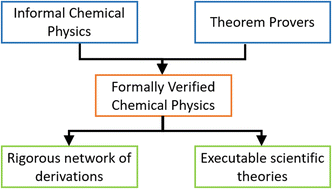
Josephson et al.‘s paper “Formalizing chemical physics using the Lean theorem prover” is featured on a new episode of the Breaking Math podcast! Find it at the links below or in your favourite podcatcher.
Read the open access article here.

Josephson et al.‘s paper “Formalizing chemical physics using the Lean theorem prover” is featured on a new episode of the Breaking Math podcast! Find it at the links below or in your favourite podcatcher.
Read the open access article here.
Our new infographic highlights work from Hilton et al. on a 3D-printed, modular system for classical and photochemical synthesis:
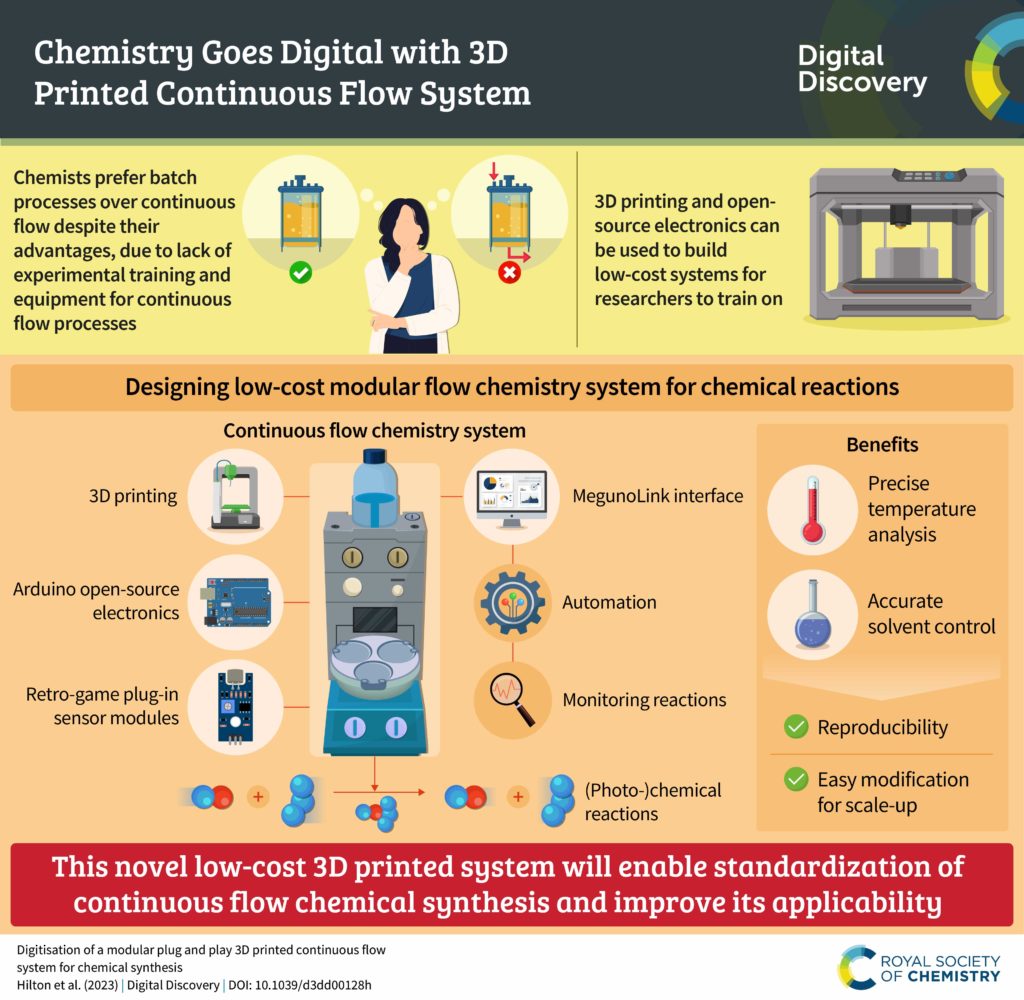
Read their paper below to find out more:
Digitisation of a modular plug and play 3D printed continuous flow system for chemical synthesis
Mireia Benito Montaner, Matthew R. Penny and Stephen T. Hilton, Digital Discovery, 2023, 2, 1797–1805
Work by Coley et al. features in the next Digital Discovery infographic, which introduces a reformulation of the roughness index (ROGI) to help understand the roughtness of QSPR surfaces created by new models.
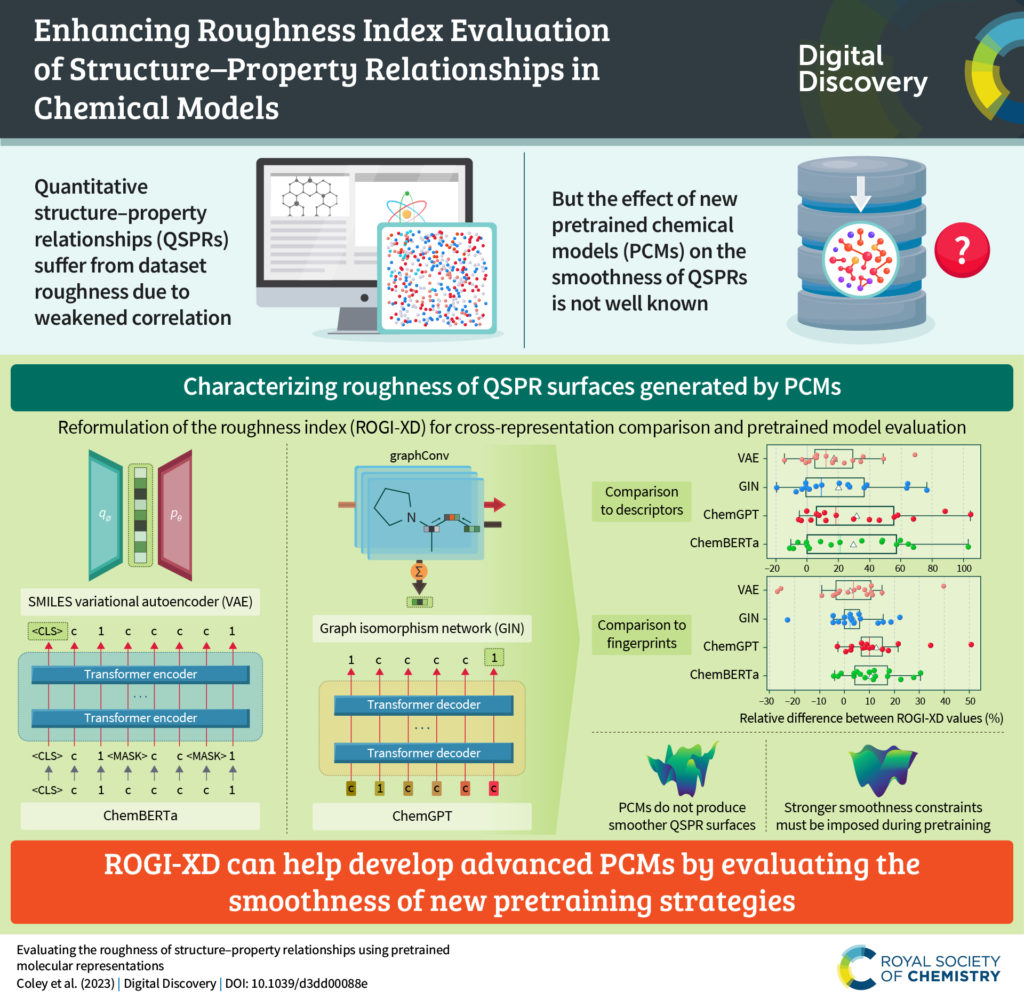
Get the whole story in their article, available open access:
David E. Graff, Edward O. Pyzer-Knapp, Kirk E. Jordan, Eugene I. Shakhnovich and Connor W. Coley, Digital Discovery, 2023, 2, 1452–1460
Our latest research infographic shares Snapp and Brown’s heuristic framework for defining the operaiton of self-driving labs.
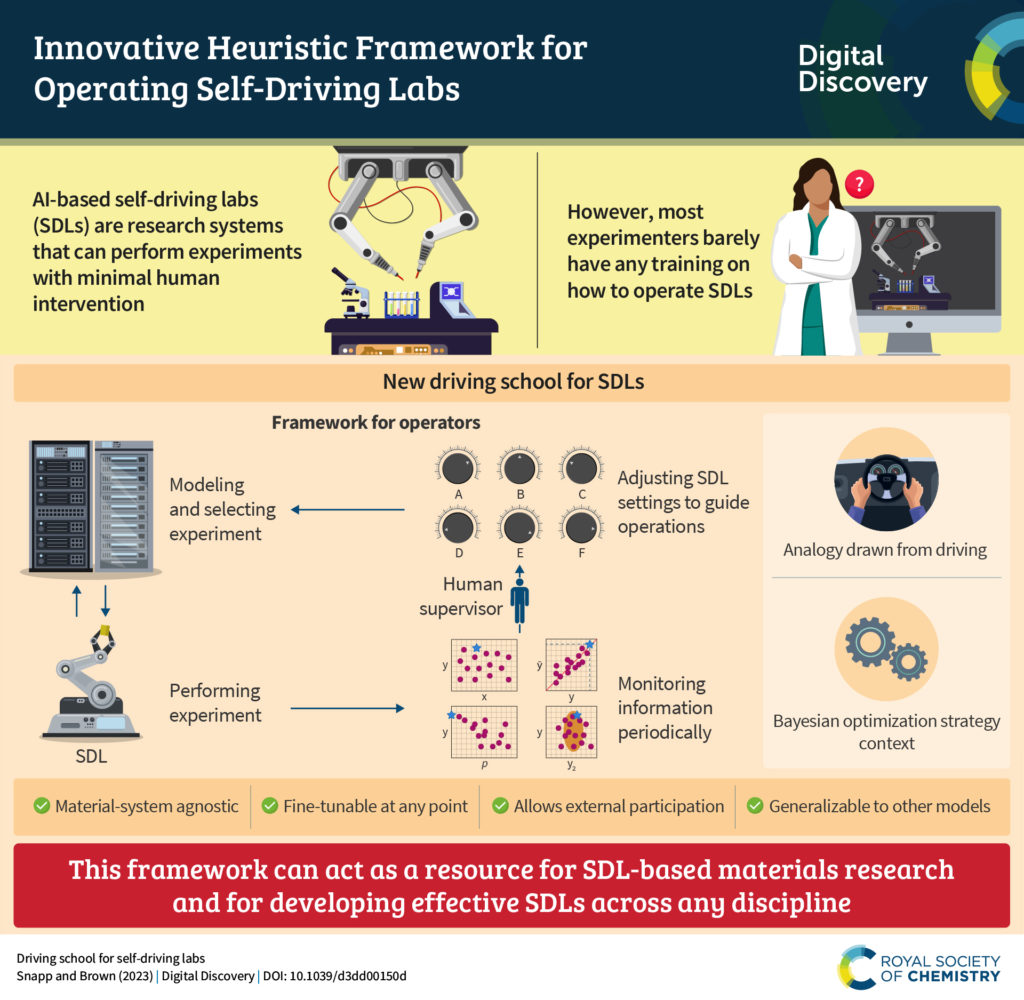
Find out more in their open access article here:
Driving school for self-driving labs
Kelsey L. Snapp and Keith A. Brown, Digital Discovery, 2023, 2, 1620–1629, DOI: 10.1039/D3DD00150D
Discover new research on feature selection for molecular systems in this new infographic:
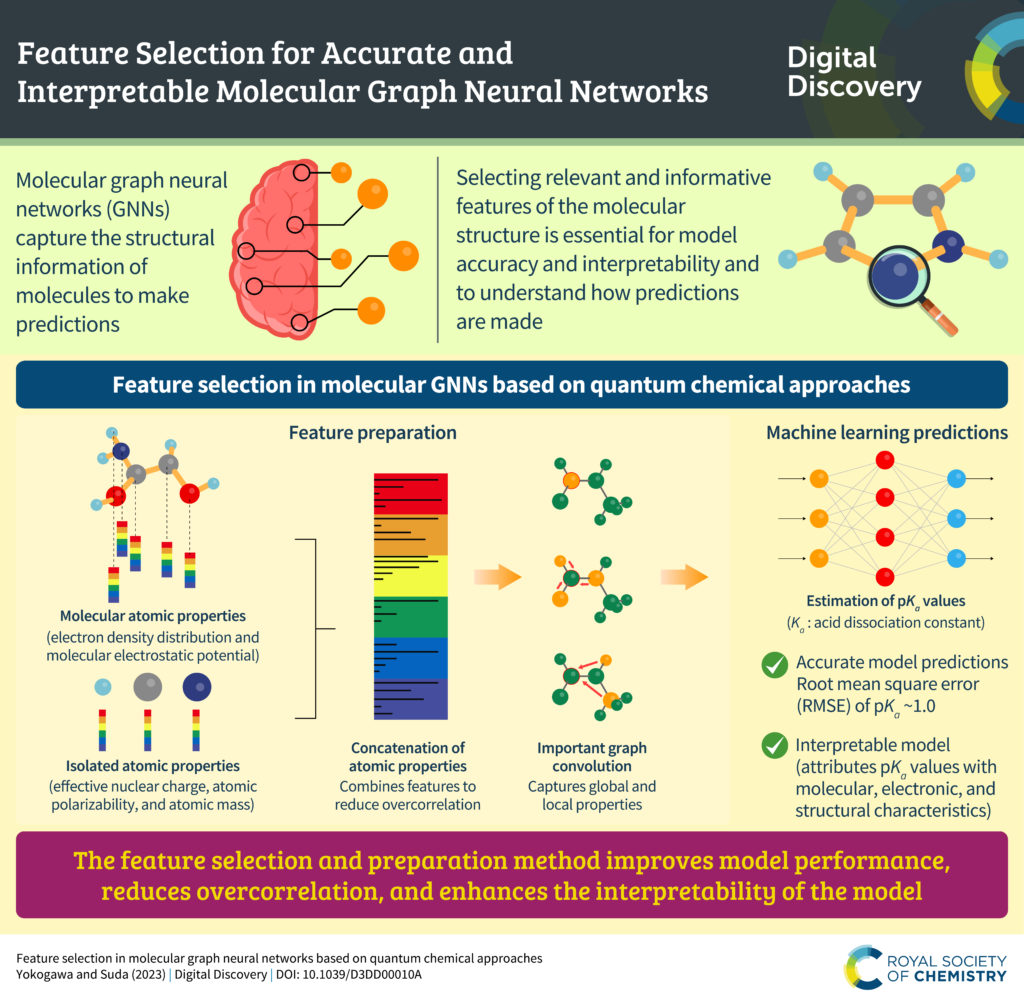
Read the open access full article at the link below:
Feature selection in molecular graph neural networks based on quantum chemical approaches
Daisuke Yokogawa and Kayo Suda, Digital Discovery, 2023, 2, 1089–1097, DOI: 10.1039/D3DD00010A
Our newest infographic presents research from Jiscoot, Uslamin, and Pidko, developing an algorithm for constructing and evaluating kinetic models which has a a grounding in physical effects.
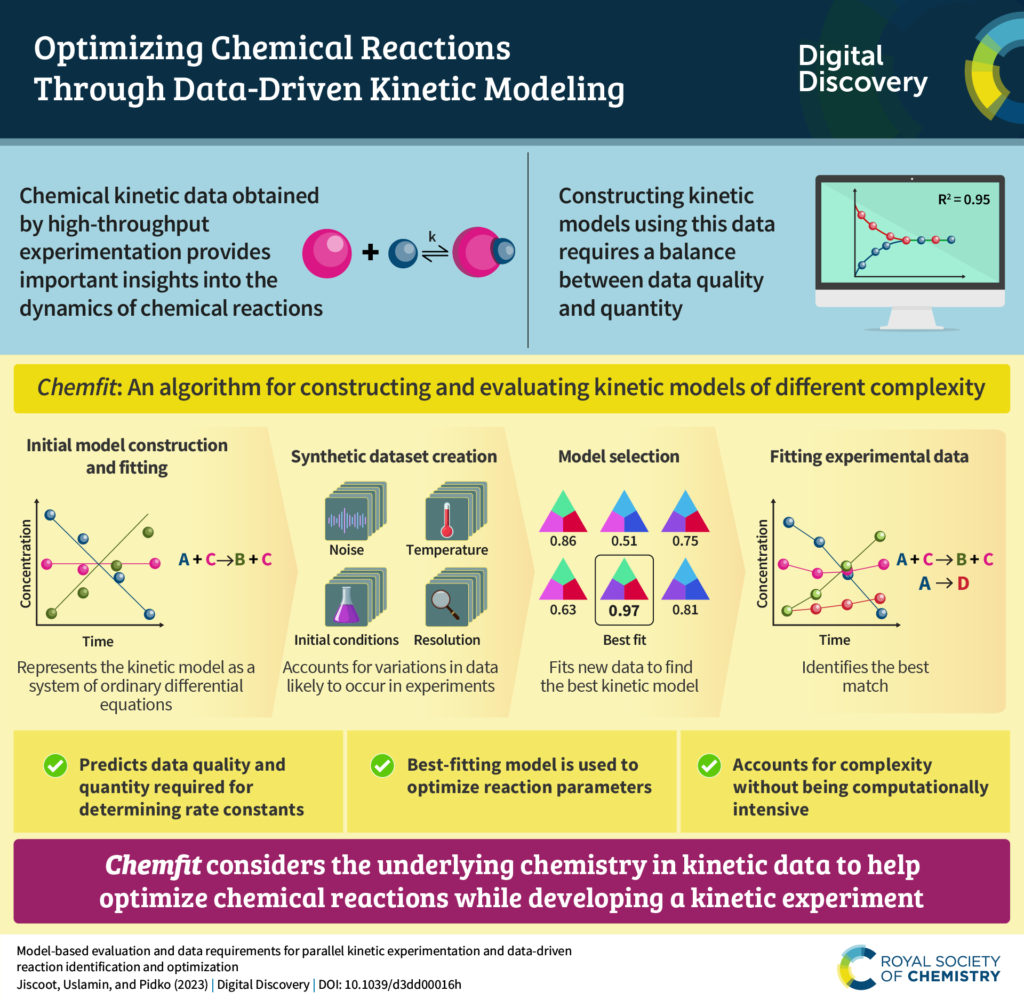
Read their full article, open access, at the link below:
Nathan Jiscoot, Evgeny A. Uslamin, and Evgeny A. Pidko, Digital Discovery, 2023, 2, 994–1005, DOI: 10.1039/D3DD00016H
Our recent Desktop Seminar with our Outstanding Paper Award winner Claudiane Ouellet-Plamondon, and Associate Editor Linda Hung, is now available to view on demand. We hope you enjoy the interesting work from our presenters!
|
Professor Claudiane Ouellet-Plamondon École de Technologie Supérieure Montreal, Canada Title: “From automated mix design of concrete for 3D printing to a vision of an algorithmic system for net zero concrete.” |
 |
|
Dr Linda Hung Toyota Research Institute, United States Title: “Data-driven insights about inorganic crystal structures.” |
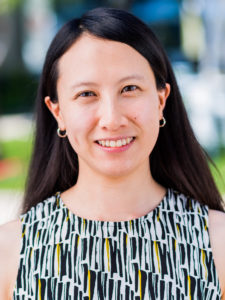 |
We are pleased to announce a new desktop seminar to recognise the Digital Discovery Outstanding Paper Award winners for 2022, Professor Claudiane Ouellet-Plamondon and Dr Vasileios Sergis.
Join Professor Ouellet-Plamondon and Digital Discovery Associate Editor Dr Linda Hung as they present their latest research. This 60-minute seminar will allow researchers of all professional levels to connect and share ideas and ask questions.
If you’re interested in the seminar but can’t make the date, register your interest and we’ll send you a link to the recording afterwards.
Tuesday 24 October, 0900 PDT
|
Professor Claudiane Ouellet-Plamondon École de Technologie Supérieure Montreal, Canada Title: “From automated mix design of concrete for 3D printing to a vision of an algorithmic system for net zero concrete.” |
 |
|
Dr Linda Hung Toyota Research Institute, United States Title: “Data-driven insights about inorganic crystal structures.” |
 |
More about this year’s Outstanding Paper Award winners
This seminar has already taken place, however you can view a recording at the link below:
We’re pleased to announce that Dr Giordano Mancini is the winner of the Digital Discovery mug in our most recent data reviewer prize draw. Congratulations Giordano!
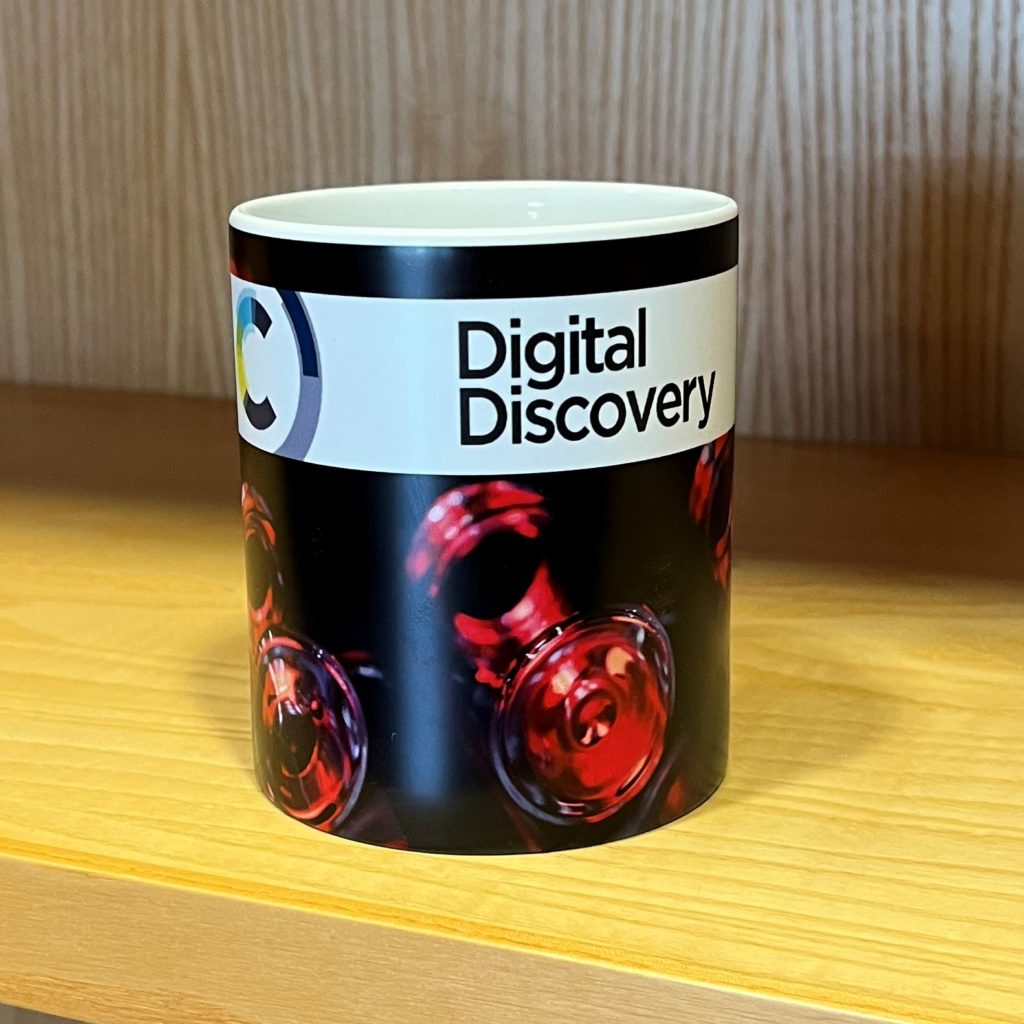
If you would like to join our data reviewer pool and have the chance of winning our next mug, please see our earlier blog post for information.
We’re pleased to share this new infographic based on research from Florence et al., which uses machine learning techniques to predict the flow behaviour of pharmaceutical powders from their physical properties:
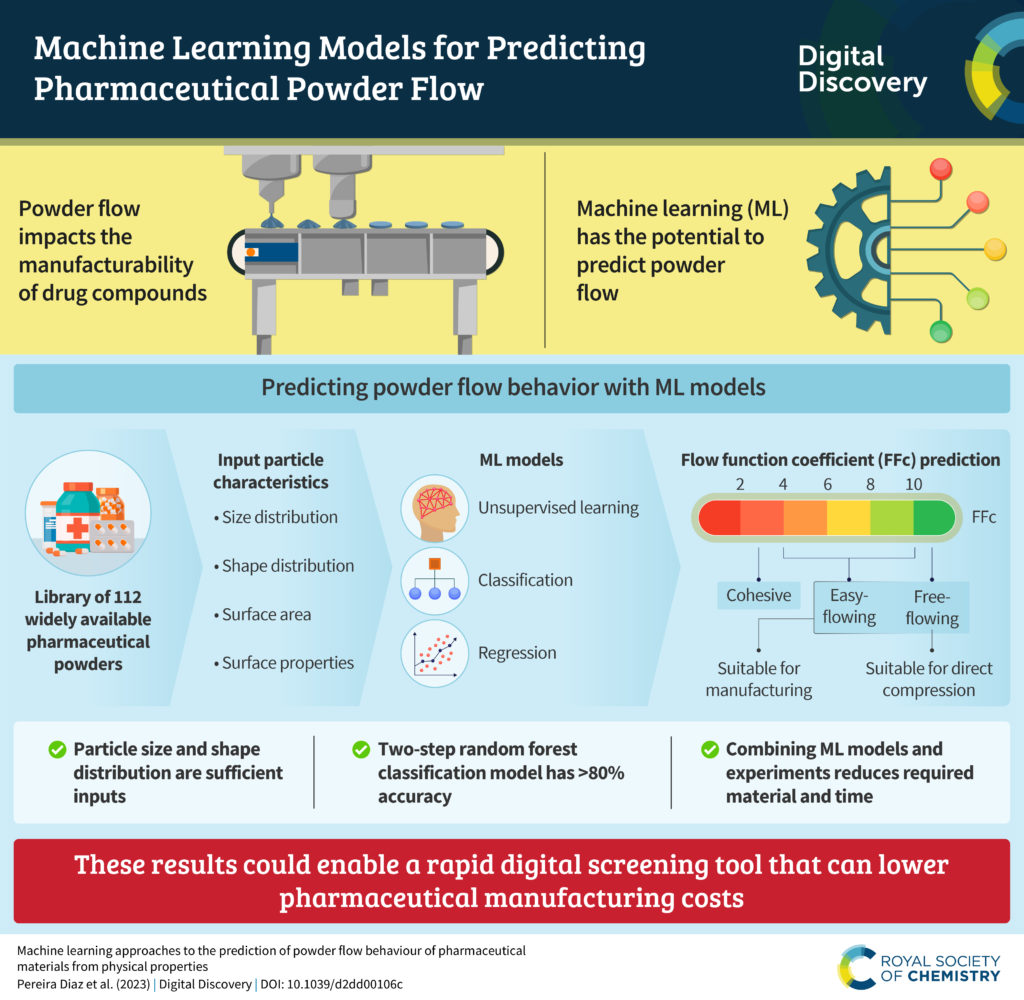
Read the full article (open access) for more: